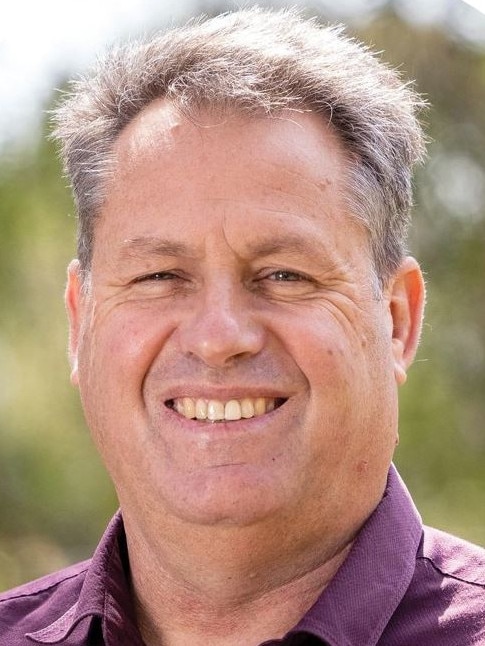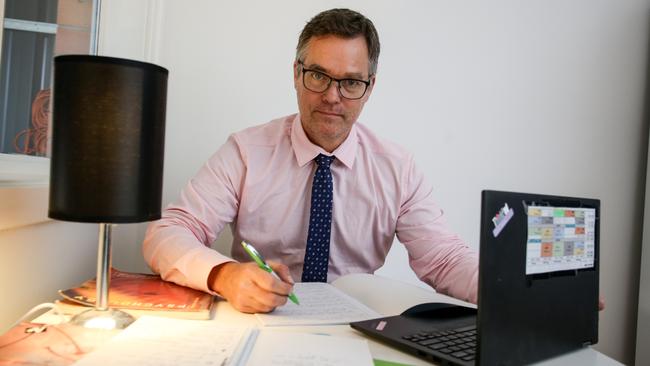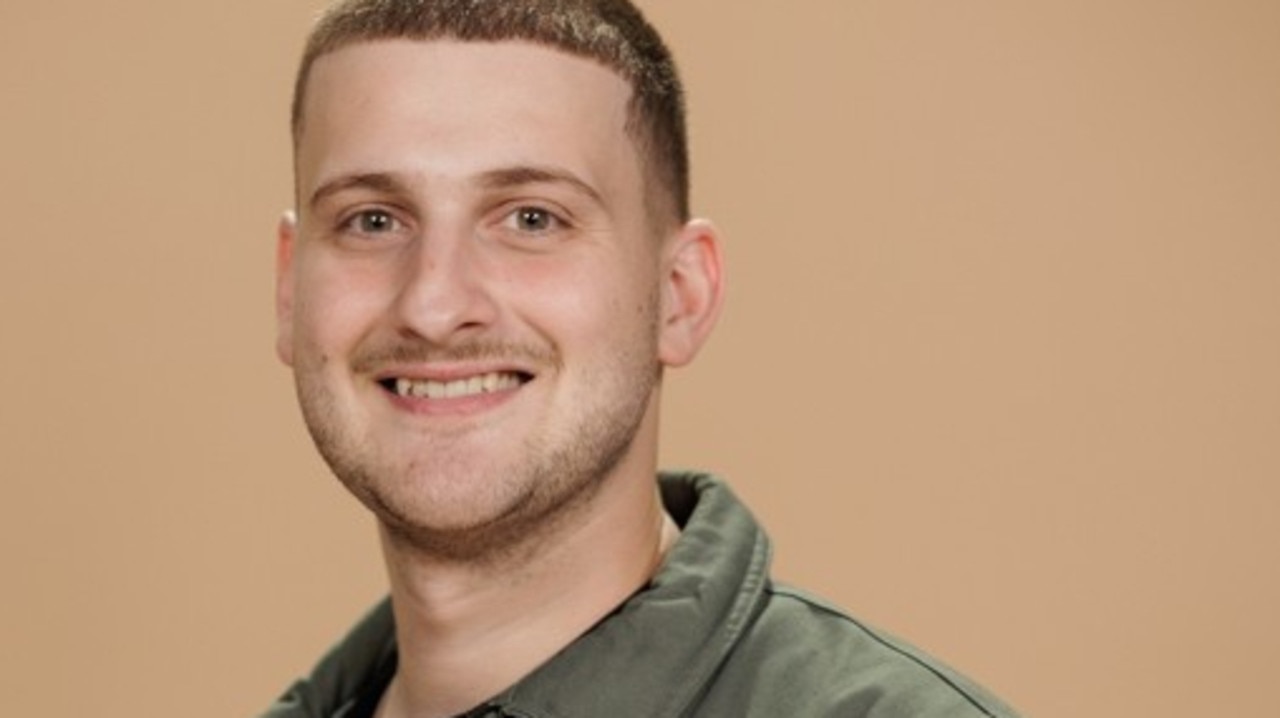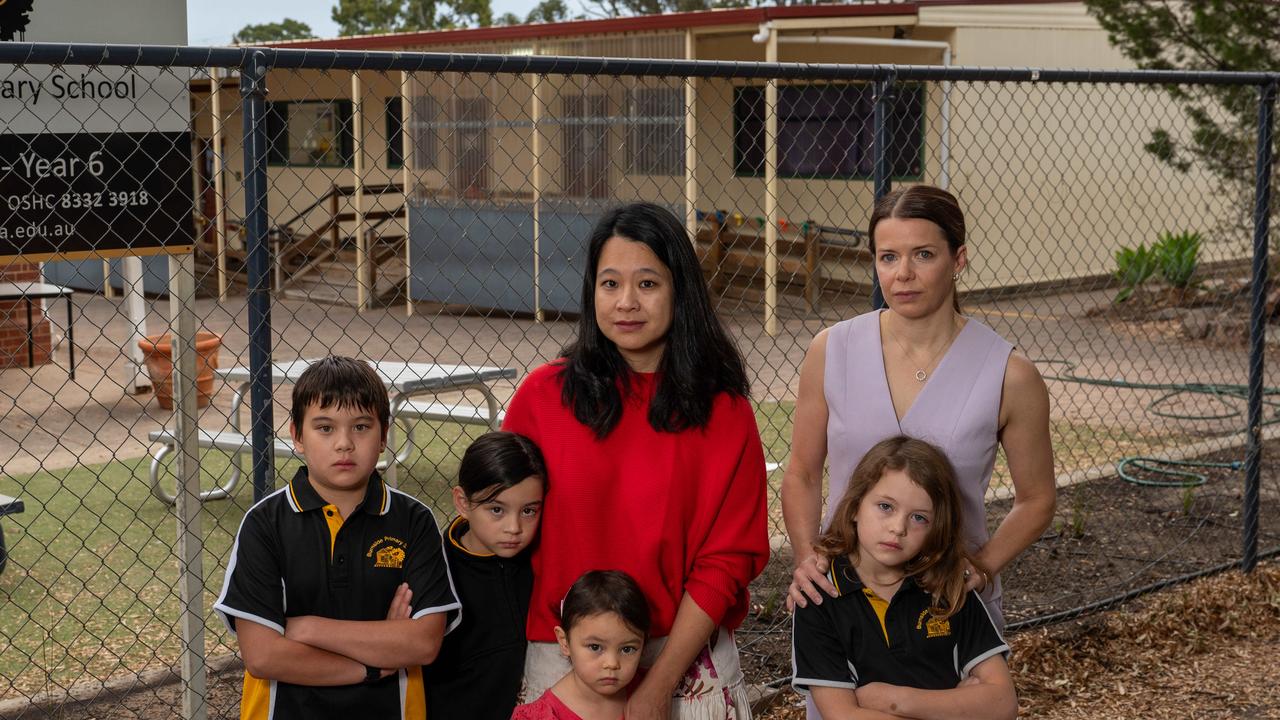Teachers call for ‘second adult’ in every classroom as ‘complex’ kids, parents bring challenges to school
Teachers are ready to quit in droves, confronting new stats reveal, as changing attitudes from bosses, parents and kids spark fears for the next generation of aspiring educators.

Education
Don't miss out on the headlines from Education. Followed categories will be added to My News.
Increasingly complex education needs and student behaviours, including angry and violent outbursts from very young children, are driving the state’s already stressed-out teachers to “breaking point”.
The Australian Education Union SA is calling for every public school teacher in primary and secondary settings to be supported by a “second adult” in the form of a school support officer in every classroom.
The direction is included as part of the union’s “revolutionary platform” to address teacher shortage, stress and high levels of burnout as part of a new enterprise bargaining pitch.
The union wants better, more extensive and formalised mentoring of junior teachers around things such as behaviour management as well as more “personal” time for teachers to prepare engaging lesson plans and collaborate with colleagues.
They say growing bureaucratic requirements and a proliferation of top-down initiatives are reducing time for the core work of teaching.
The union’s push comes as new national research shows two-thirds of teachers have considered leaving the teaching profession in the past two years with more than half of those in the industry for five years or less, also having considered quitting.
McCrindle Research’s annual snapshot of education trends found seven in 10 teachers (72 per cent) identified the biggest blocker to them thriving at work as being “overworked and stressed”.
Less than a quarter of teachers surveyed (24 per cent) would recommend a career in teaching.

President Andrew Gohl, a former high school teacher, said more complex societal issues as well as a shifting “parental skill-set” was spilling into the classroom.
“The community in which we live is more complex (and) kids are bringing the trauma and difficulties faced at home to the classroom,” he said.
“It is shocking to learn there are teachers in the preschool setting needing the support of a behaviour coach to deal with the behaviour of some four year olds … (this flows on to) primary school where we are starting to see more high-end difficult behaviour, defiance and in some cases violence (which) also follows through to secondary school.”
“We are asking for a SSO in every class to help the teacher.”
The practice is common in special education schools to support students with high needs while some schools, such as Port Augusta Secondary School and Aldinga Payinthi College have prioritised school budgets to allow for it.
Ahead of drafting the new manifesto, Mr Gohl said union representatives “travelled the state” asking teachers both what they loved about teaching and workday roadblocks.
“The workload that exists is unsustainable … teachers are tired,” Mr Gohl said.
“It is really sad … how do you get a new generation of teachers if the narrative from the current generation is, ‘find another job, this one is too hard’?”
Ann Clarke, a secondary performing arts teacher and year 11 co-ordinator, agreed both demands on teachers and attitudes to them had changed in the past decade.
“There is a shift in support we get from families and communities around trusting that we know what we are doing, that we are doing the best for their kids,” she said.
“(We’ve also seen an) increase in administrative tasks … paperwork, answering emails and constantly monitoring and responding to all the different communication platforms.”
Responding to the union’s call for SSOs in every public school classroom, SA Education Minister Blair Boyer said the government was committed to supporting teachers and students who “need the most help”.
He pointed to an added “100 (full-time equivalent) extra mental health and learning support in 65 schools across the state … (and) autism inclusion teachers in every public primary school.”

‘Teachers don’t have time or freedom anymore’
After more than a decade and a half of teaching, Danny Ashcroft hasn’t lost his passion for kids or wanting to connect with them to inspire a love of learning.
But the 49-year-old is increasingly frustrated by the growing demands of his day-to-day work and the bureaucratic, “non-teaching” requirements.
The science teacher, whose specialist areas are biology and psychology, admits he has considered leaving the profession.
“The job has changed quite a bit … it has become a lot more administrative,” he said.
“There is now a lot more emphasis on teachers justifying all their actions and things they do … we are spending a lot of time formatting assessments, changing assessments around to fit (particular) criteria which isn’t giving us much time to be creative as teachers.
“It can be incredibly overwhelming when … the vast majority of what we are being required to do doesn’t have any tangible benefit in the classroom (but) is about ticking a box.
“Teachers now just don’t have the time, flexibility or freedom to be creative with their classes … to create engaging lessons and activities to give students the best chance to understand – to be excited to learn.”
And, he says, it shows.
Mr Ashcroft, who taught for 15 years in the country before moving to a school in Adelaide’s northern suburbs, said kids’ attitude to learning was shifting.
“It is becoming harder to hook them into the learning because they are so easily distracted, or just don’t see the point in learning the content … they get quickly bored and then the behaviour issues start,” he said.
“I am finding there is a lot more disengagement from students.”
Mr Ashcroft said it was disappointing the teaching profession wasn’t held in the high esteem it once was.
“I am confident in saying the majority of teachers are doing this job because they are passionate about wanting to achieve the best for their students … a lot of people just see teachers as the babysitter,” he said.
“I am fortunate that I have made too many connections (and want to) continue teaching … I would miss the classroom too much.”





